Discussion in the linguistic world has been swirling of late around a set of peculiar sweary compounds like shitgibbon, wankpuffin, and jizztrumpet. Ben Zimmer reveals their history, Taylor Jones describes their construction, and Gretchen McColloch discusses their constraints. She also proposes the term shitgibbon compounds, which I think is smashing, and I’m going to use it here.
Shitgibbon compounds aren’t new; Arika Okrent pointed out in a recent episode of Talk the Talk that one such construction, scumbucket, has been popular since the 70s. It appears in print as early as 1976.
For this post, I’m showing the frequency of many possible shitgibbon compounds, measured in raw Google hits, as a way of getting an idea of their popularity. (See the drawbacks of this method here.) This might give us some ideas about what works and what doesn’t. I chose these parts because these are the ones most commonly mentioned in the aforementioned articles. (A note to anyone who wants to recheck these results: After 75 searches, Google asked me to confirm that I wasn’t a bot. It did it again after 150 searches.) Although I enclosed these terms in quotes, Google appeared to include versions with spaces and hyphens into the count.
Per Zimmer, each of these shitgibbons start with a monosyllabic sweary word, and the other two syllables are a trochee; a two-syllable word with the stress on the first syllable. Jones and McColloch point out that not every trochee works, though: ass-master is not an insult, and you can call me a cock-ninja anytime.
Here’s the chart. I’ve sorted the rows and columns by total frequency.
Let me make some observations along traditional the usual lines.
Phonological
Swear words in English appear to have a strong tendency to end in a stop. This puts some constraints on what kind of trochee is likely to follow. Trochees that start with a stop (these are sounds like /p/, /b/, /t/, /k/, and so on) are the least popular, staying largely at the bottom of the chart (except bucket). Trochees that start with a nasal or with /w/ are popular. Something striking: no fricatives (except /w/). Carrie reminds me that /w/ isn’t a fricative, so no fricatives.
Going along with McColloch, it looks like similar consonants don’t play well together. These are unpopular:
- pisspuffin
- cockcanoe
- wankweasel
Additionally, having the swear end with the same sound as the trochee seems to be a no-no. Not very frequent:
- twattrumpet
- cunttrumpet
- (but note the popularity of shittrumpet)
Having two of the same vowel is great.
- twatwaffle
- shitgibbon
- fucktrumpet
- fuckbucket
- fucknugget (especially notable when –nugget doesn’t go with much else)
- cockwaffle
- cockwomble
- (however very few examples of scumtrumpet)
Lexical
Some of these shitgibbons appear to be lexicalising. Fartknocker was popularised as an insult by Beavis and Butthead, so it’s had a headstart. Same with douchecanoe, often used on the net and popular despite canoe not being a trochee.
For the well-publicised ones (cockwomble, jizztrumpet, wankpuffin, and of course shitgibbon), some of the hits seem to be part of the discussion around these terms.
Semantic
With the evident lack of popularity for trochees that begin with a stop, how do we explain the popularity of bucket? Bucket goes well with excretions that you might actually keep in a bucket (jizz-, spunk-, shit- — though strangely not piss-)
Some of these appear not to be insults, but as something else, and this might be adding to their count.
- fartnugget – the result of a really severe shart
- douchenozzle – they really do have nozzles
The trochee waffle is popular across the board, and I think this might be because waffle is a funny sort of word. So is bucket. But wombles are funny, and yet not widely taken up, with the exception of cockwomble.
Which raises a question: The fuck’s a womble?
A womble is a fictional animal that picks up rubbish. Animals are good, the siller the better.
- weasel
- puffin
- gibbon
Perhaps we should expect to see the appearance of lemur, but its spelling makes it difficult to find the boundary between swear and trochee. Spot the boundary on these:
- shitlemur
- fucklemur
- jizzlemur
- cocklemur, which my computer wants to correct to cocklebur
Hyphens and spaces might help lemur join the ranks of sweary animals.
Let me know what you think about this chart, or if there’s anything obvious I should have included. My email is talkthetalk@rtrfm.com.au
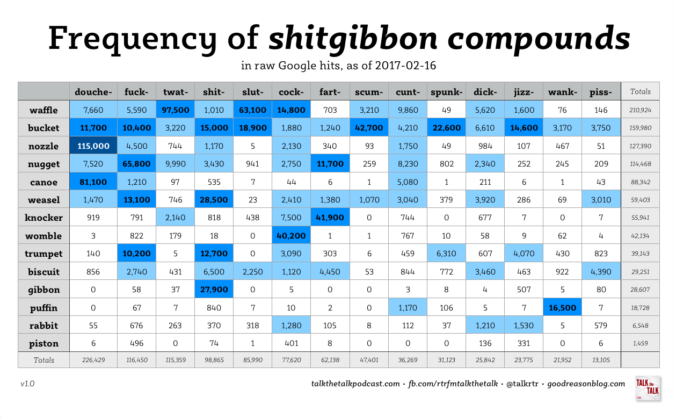
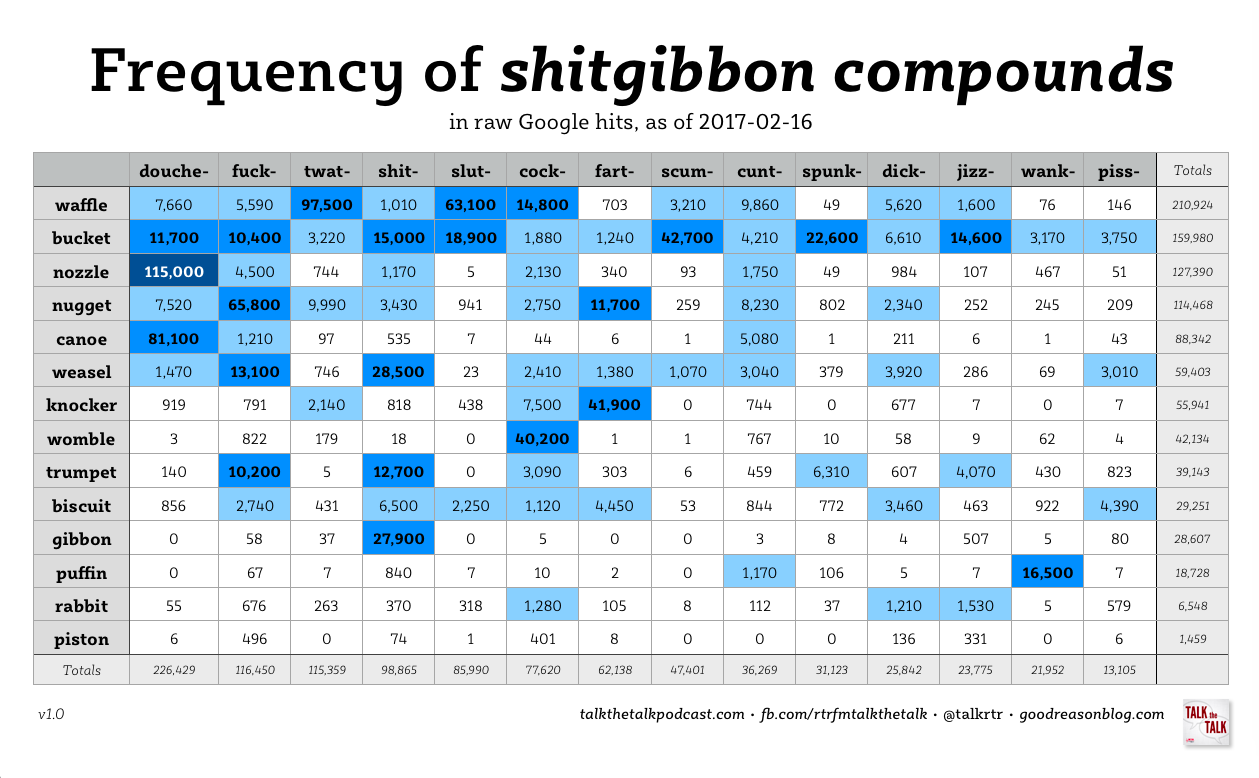
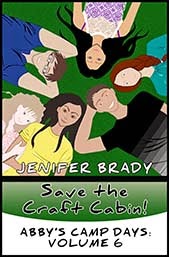

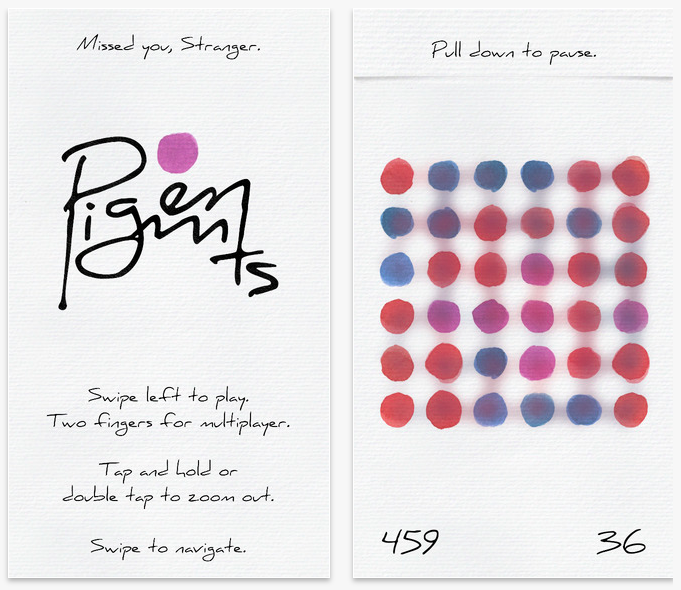
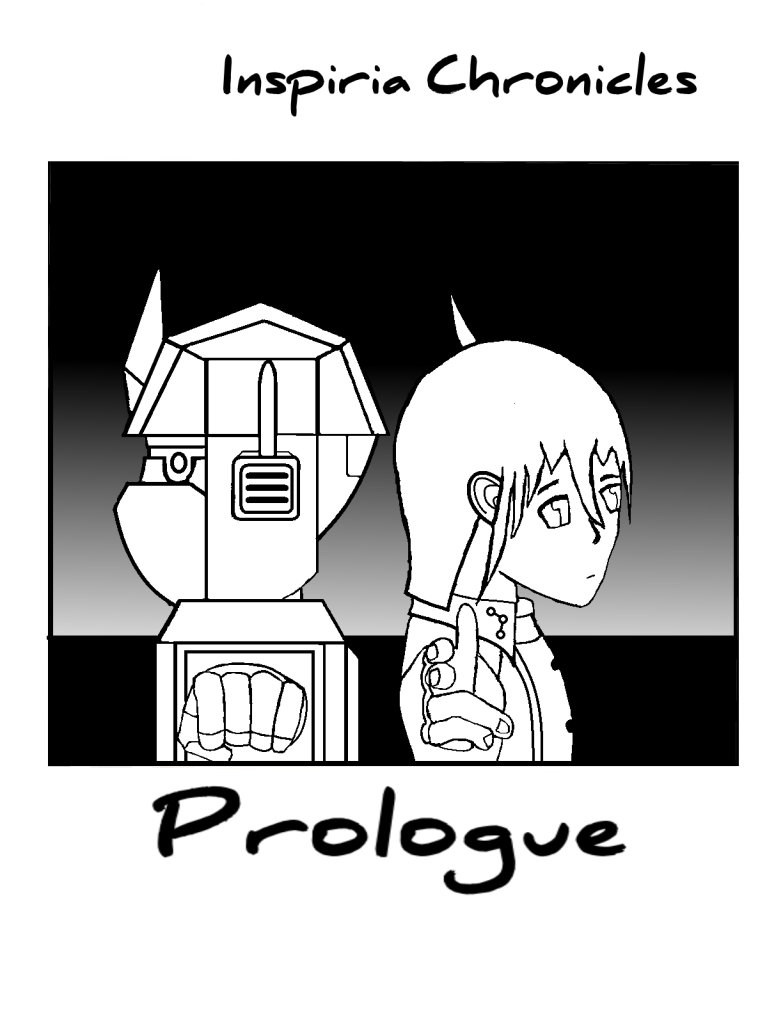


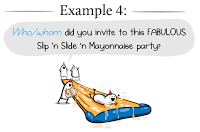


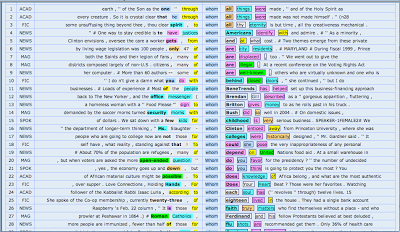
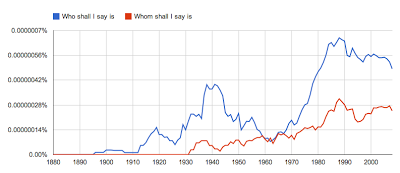
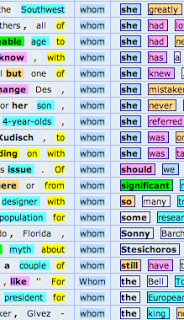
Recent Comments